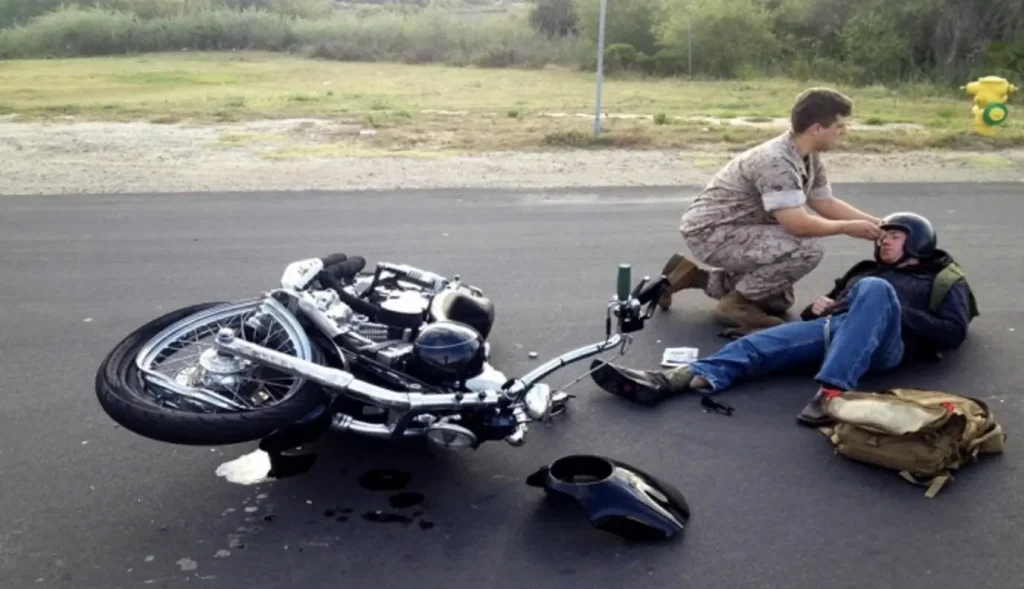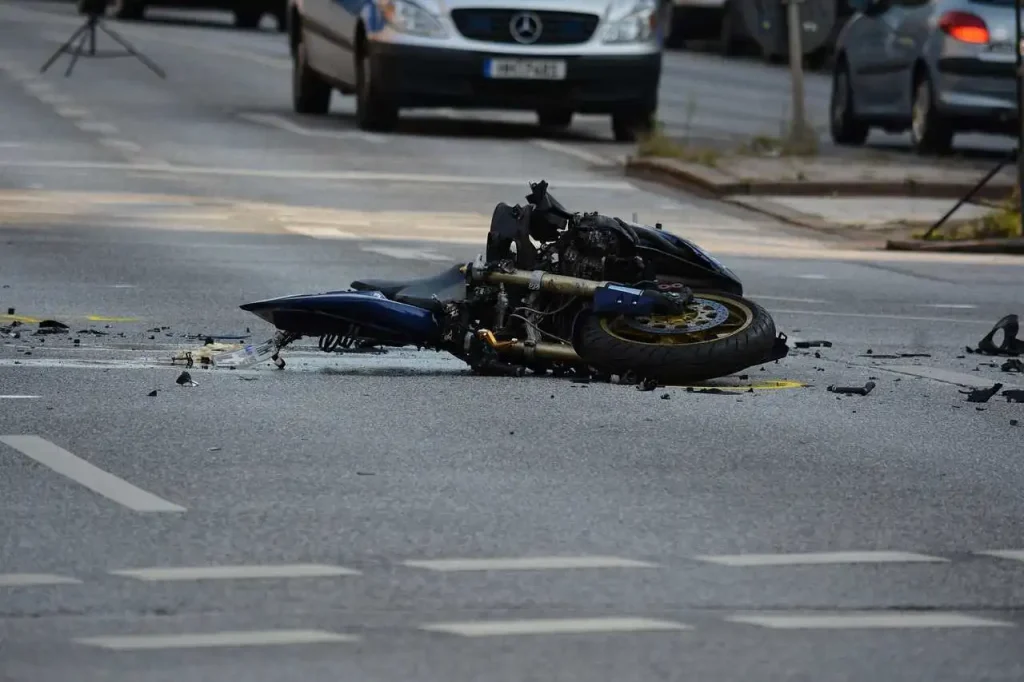personal injury lawyers
Fighting for maximum injury compensation for you and your family
No Fees Until We Win


Can I Sue for Wrongful Death After a Motorcycle Accident in New Jersey?
The after-effects of a motorcycle accident can be devastating, especially when it results in the loss of a loved one. In such painful circumstances, the question often arises, can I sue for wrongful death in New Jersey?
This article aims to provide a comprehensive guide on this matter, offering clear and easy-to-understand information.

What is Wrongful Death?
Wrongful death is a legal term that encompasses the tragic situation where an individual loses their life as a direct result of the negligence or misconduct of another party.
In the context of a motorcycle accident as they are different from car accidents, this poignant scenario unfolds when the victim’s death is a consequence of someone else’s actions.
This can include the recklessness of another driver, hazardous road conditions, or any other form of negligence that ultimately leads to the untimely death of the motorcyclist.
Wrongful death cases aim to hold the responsible party accountable for their actions, seeking justice for the bereaved families who are left grappling with the devastating after-effects of the loss.
Who Can Sue for Wrongful Death in New Jersey?
In New Jersey, specific individuals are eligible to file a wrongful death lawsuit. These include, one key factor is the surviving spouse or domestic partner can file a wrongful death claim.
If there is no surviving spouse or domestic partner, the children of the deceased can pursue a claim.
In addition, in the absence of a surviving spouse, domestic partner, or children, the parents of the deceased have the right to file a wrongful death lawsuit.
What Damages Can Be Recovered in a Wrongful Death Lawsuit?
When pursuing a wrongful death claim in New Jersey, the aim is to seek compensation for the various losses suffered due to the negligent actions of another party. The recoverable damages fall into two main categories
1. Economic Damages:
One of the primary economic damages that can be recovered in a wrongful death lawsuit involves the costs associated with laying the deceased to rest. This includes expenses related to the funeral service, burial plot, casket, and other related costs.
In cases where the deceased incurred medical expenses before succumbing to their injuries or illness, these costs can be recovered. This encompasses the medical bills and treatment expenses directly related to the final injury or illness.
These economic damages aim to alleviate the financial burden placed on the surviving family members as a result of the tragic incident.
2. Non-Economic Damages
Non-economic damages address the intangible losses experienced by the deceased before their death. This includes the pain and suffering they endured as a result of the injuries sustained in the accident.
Another facet of non-economic damages involves the impact on the emotional well-being of the surviving family members. This encompasses the loss of companionship, guidance, and consortium, the unique and valuable contributions that the deceased provided to their family.
These non-economic damages recognize the emotional toll the wrongful death has taken on the surviving family and seek to provide compensation for these intangible losses.
How Long Do I Have to File a Wrongful Death Lawsuit in New Jersey?
Time is of the essence in filing a wrongful death lawsuit in New Jersey. The statute of limitations, or the time limit within which you must file a claim, is generally two years from the date of the victim’s death.
Failing to initiate legal action within this timeframe may result in the forfeiture of your right to seek compensation.
Recoverable Damages in a Motorcycle Accident Wrongful Death Claim

In the specific context of a motorcycle accident, additional damages may be recoverable. These can include:
- Compensation for damage to the motorcycle and other property.
- If the deceased was the primary income earner, the family may be eligible for compensation for the loss of financial support.
- In cases of extreme negligence or intentional misconduct, punitive damages may be awarded to punish the responsible party.
What Compensation Can You Obtain in a Wrongful Death Claim?
The compensation obtained through a wrongful death claim in New Jersey aims to provide financial support to the surviving family members. This may include:
- Funeral and Burial Expenses: Covering the costs associated with laying the deceased to rest.
- Medical Bills: Reimbursement for medical expenses incurred before the victim’s passing.
- Lost Income: Compensation for the financial support the deceased would have provided to the family.
- Non-Economic Damages: Providing monetary compensation for intangible losses such as emotional distress, loss of companionship, and pain and suffering.
Contact Your Personal Injury Lawyer to Discuss Your Wrongful Death Case in NJ
Processing the complexities of a wrongful death case in New Jersey can be overwhelming, especially when dealing with the emotional after-effects of a motorcycle accident.
If you find yourself facing such a situation, consider scheduling a consultation with a reputable law firm such as the Rosengard Law Group to discuss the specifics of your case.
A skilled personal injury lawyer can provide invaluable legal guidance, helping you understand the complexities of the legal process, potential outcomes, and the strength of your case.
FAQs
What is the Average Settlement for a Wrongful Death Lawsuit in New Jersey?
The nature of the motorcycle accident and the degree of negligence involved. The financial impact on the surviving family, including lost income and medical expenses. Compensation for intangible losses, such as pain and suffering.
Conclusion
Losing a loved one in a motorcycle accident is a heart-wrenching experience. Pursuing a wrongful death claim in New Jersey is a way to seek justice and provide financial support for the surviving family.
If you find yourself facing such a situation, consulting with a personal injury lawyer can be a crucial step toward understanding your rights and processing the legal process. Remember, you don’t have to face these challenges alone, help is available to guide you through the path towards justice.

Free Injury Case Evaluation
Send the form below and we will call you back in minutes.
…or Call Us Now
856-284-6446
